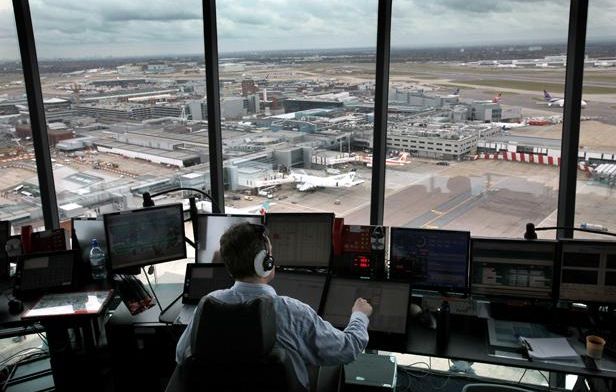Three out of four flights canceled on departure or arrival from Paris-Orly, more than half at Roissy-Charles-de-Gaulle and many others elsewhere… Thursday was a real hassle for dozens of thousands of passengers in France.
The reason ? A strike notice, finally lifted, for air traffic controllers, these famous “air traffic controllers” without whom no plane can take off or land. Who are they ? How are they trained? How much do they earn or how do they work? 20 minutes makes the presentations.
What training?
The approximately 4,000 air traffic controllers currently in service in France all have one thing in common: they know Toulouse. Precisely the National School of Civil Aviation (ENAC), the only one capable of issuing them their diploma. Most often, it is a master’s degree in air traffic management and control, accessible at Bac + 2. Candidates then take a competitive examination common to the major schools (CCINP), which is very selective. “In recent years, there were around 900 for 100 to 120 places,” the school explains.
Once ENAC is integrated, the future “air traffic controllers” are considered civil servants and therefore paid. “A little more than the minimum wage in the first year and not far from 2,000 euros in the third year. » Because the training, with on-the-job learning, lasts three years. At the end of this period, the “air navigation control engineers” obtain their assignment to an airport.
What exactly do they do?
“They are the conductors acting behind the scenes to make the magic of the air possible. » This is how a promotional video from the site devenir.controleurairérien.fr describes, in all modesty, the profession. More factually, the voice adds: “The safety of millions of passengers depends on their choice. »
It must be written: the “air traffic controllers” have heavy responsibilities. Behind their numerous screens, they are the ones who manage air traffic and ensure its safety. In direct contact with the pilots, other airport services, by authorizing or not certain takeoffs or landings, by managing emergencies… “The air traffic controller makes his decisions in real time to adapt to each situation. An indispensable actor, he participates in the smooth running of an incredibly vast aerial ballet,” the famous site further describes. In summer, there are around 11,000 daily flights to watch out for…
How is their work organized?
Air traffic does not take a break at night… nor do the “air traffic controllers”, mobilized every day of the week. Often in teams of two or even three for shifts of eleven hours maximum, with an obligatory thirty-minute break every 2.5 hours. The goal ? May their concentration be as complete as possible. This necessarily leads to certain compensations: they work a maximum of 32 hours per week, which is, in short, rarely four days.
Sometimes, air traffic controllers also have the right not to come… on their working day. All with the agreement of their hierarchy! This is the “clearance” system, proposed when traffic is low. With certain limits: in 2023, the Bureau of Investigation and Analysis for Civil Aviation Safety (BEA) denounced this practice in a report. A collision was then narrowly avoided at Bordeaux airport due to “an insufficient number of controllers present”.
How much do they earn?
Like all civil servants, they depend on salary scales, with indices that evolve with seniority. At the lowest point of their career, “air navigation control engineers” earn 1,944.50 euros/gross per month. This amount does not take into account bonuses and other benefits and only lasts two years. With experience and possible rises in rank, an “air traffic controller” can easily expect 5,000 euros gross per month, always as a base. This is precisely the amount on which the site devenir.controleurairien.fr communicates.
“The air traffic controller does not take work home and takes full advantage of his free time. Few professions with this level of remuneration (average salary of 5,000 euros gross at the start of a career) offer this possibility,” it is mentioned. This financial aspect was also at the heart of this week’s negotiations, while an overhaul of French air traffic control is being carried out. The main representative union, the SNCTA, notably demanded a 25% increase in remuneration spread over five years. A “win-win” agreement was found according to the Minister Delegate for Transport Patrice Vergriete.

